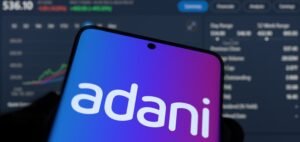Prime Highlights
- Amazon programmers insist that there is increased pressure to work faster and produce more due to AI integration into coding software.
- AI has left the majority of developers fearing their work becomes more routine, similar to warehousing automation.
Key Facts
- AI adoption at Amazon results in reduced engineering teams and tighter deadlines.
- Developers report that a part of the work turns into routine, impacting job satisfaction and career development.
Key Background
Amazon’s new employment of artificial intelligence (AI) in the software development processes has significantly impacted the work life on a daily basis for its software programmers. While AI tools are meant to boost productivity, the vast majority of engineers describe how expectations have increased and projects that used to take weeks now have to be completed in a brief portion of time. This acceleration, along with diminished team sizes, has created more substantial workloads and pressure to deliver results more quickly.
Developers have been concerned that the nature of their work is becoming more monotonous. AI programs now perform all the tasks to build entire applications, compose memos, and execute automated testing—tasks that previously allowed junior programmers to develop essential skills and know-how. This change could reduce opportunities for professional development and will eliminate the challenging and creative aspect of software development.
Even with these problems, Amazon leadership has emphasized that AI is a productivity booster and never meant to replace human ability. CEO Andy Jassy has labeled generative AI as a major cost-savings and efficiency hurdle, particularly in coding activities. The firm encourages engineers to work on and test internal AI tools and adjusts staffing proactively to balance the workload.
Yet, growing dissatisfaction within Amazon’s engineering workforce reflects broader industry fears about the adoption of AI. Employee union bodies have complained of job satisfaction and career progression in a work culture increasingly driven by AI. Amazon’s case shows how thin the line between utilizing bleeding-edge technologies and having meaningful, sustainable workplace cultures for employees is, for companies.
Read more: OpenAI Elevates Operator Agent with Smarter, Safer o3 Model








